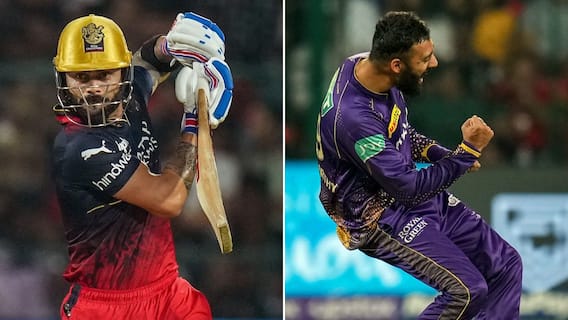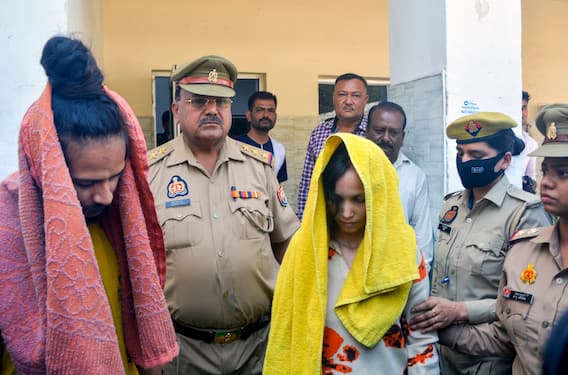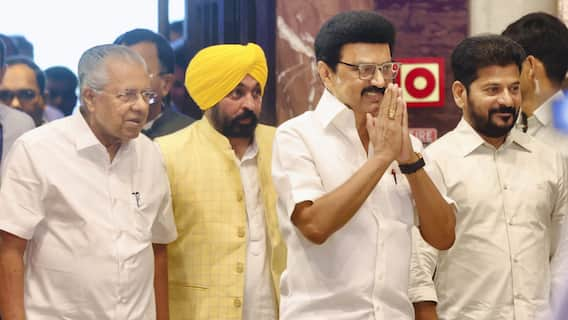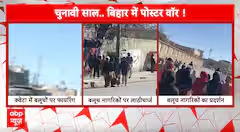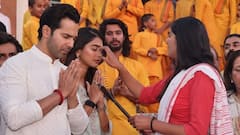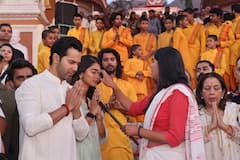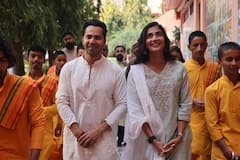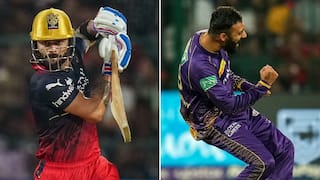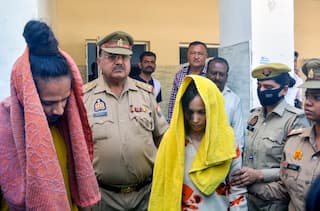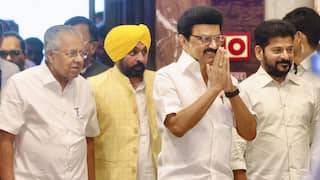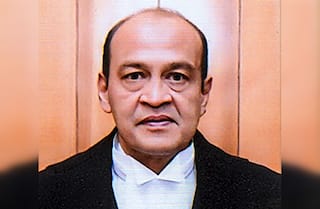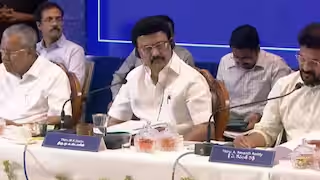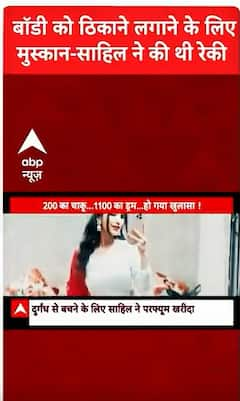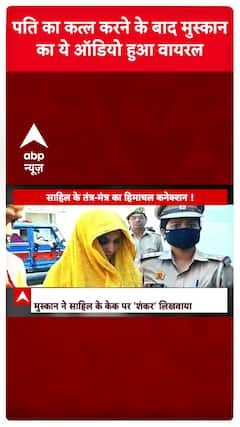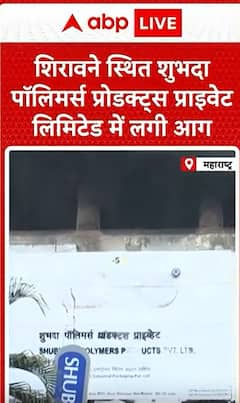Afwaah Review: This Nawazuddin-Bhumi Film Will Reinstate Your Faith In Bollywood. Watch It In A Theatre
We need a filmmaker like Sudhir Mishra to remind us what cinema can do and sometimes, as an art form, should do amidst mindless entertainment and mediocre content consumption we have become slaves of
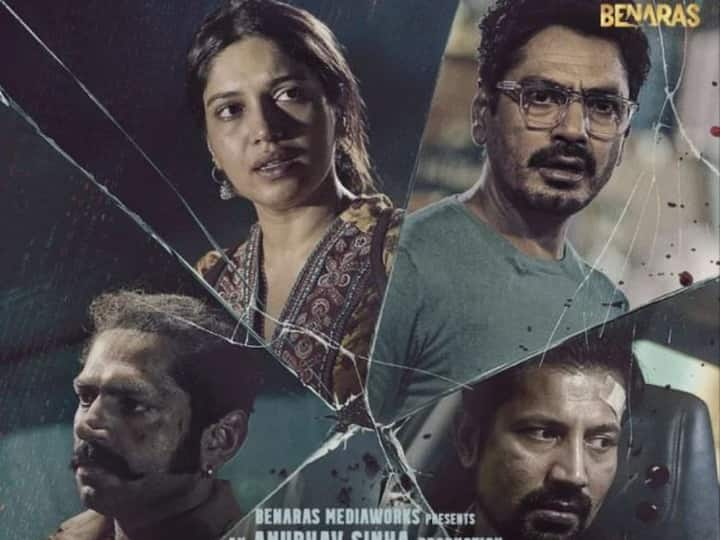
Sudhir Mishra
Nawazuddin Siddiqui Bhumi Pednekar Sharib Hashmi Sumit Kaul Sumeet Vyas
New Delhi: 'Afwaah' is a Sudhir Mishra film starring Nawazuddin Siddiqui, Bhumi Pednekar and Sumeet Vyas that should be seen by all 18+ audiences irrespective of demographics in India. Without being a film that preaches, 'Afwaah' is an important movie that talks about the extremely negative power of social media that can disrupt the socio-political-cultural fabric of society.
Sudhir Mishra does in 'Afwaah' what he does best. He uses his in-depth understanding of regional caste-gender and social politics to weave a story about two virtuous people trying to navigate their way in a society that is inebriated with social media to the extent that they don't ask why. Like many of the filmmaker's movies that leave audiences to question; Sudhir Mishra is a craftsman who creates a thought-provoking film with 'Afwaah'; a little something to keep you thinking when you step out of the theatre. And for that reason alone, one should watch 'Afwaah' in theatres.
'Afwaah' begins with an impressive opening credits song, animation strewn with references to social media and digital media. This is the only obvious experimentation with form in the film.
The opening sequence introduction to all three major characters played by Nawazuddin Siddiqui, Bhumi Pednekar and Sumeet Vyas is impressive as is the gradual flow and dissemination of information through the larger socio-political narrative about their respective stations in society.
Performance
Bhumi Pednekar (Nivedita Singh) is the daughter of Gyan Singh, an ailing local politician called 'hukum' whose alliance with another party creates political upheaval in the small constituency of Sawalpur. Sumeet Vyas( Vicky Bana) is the aspiring politician wanting to replace hukum. He also happens to be Bhumi's fiance in 'Afwaah'.
Nawazuddin Siddiqui(Rahab Ahmed) plays the role of a motivational speaker, and a copywriter, who is married to a Hindu woman and gets accidentally caught in the quagmire of local politics.
Sharib Hashmi plays Chandan, a loyal friend and right hand of Vicky Bana, and does all the dirty work for him.
All four actors deserve to be commended for their performance in 'Afwaah' while Sharib Hashmi's performance stands out for balancing brutal honesty and vulnerability despite being a despicable character in the film.
Edit
Atanu Mukherjee (editor of 'Afwaah') creates a well-balanced intercutting of shots to run parallel narratives until they all coincide. Every time, there is too much dramatic action in a scene, we see a breather of a poetic song or a complete switch to another storyline to keep 'Afwaah' afloat and not become deeply politically dense.
For instance; there is a scene when Bhumi gets shot, and there is so much tension and helplessness in the air with Nawazuddin screaming for help in the middle of a road. The scene is so well staged and performed that after everything there is to it to make you feel the helplessness in your bones, the makers cut to another scene where Chandan is being chased by a police inspector.
This balance in between narratives to never let one outweigh the other brilliantly keeps the larger social-politics at the centre, reinstating time and again that all these superstructures are way above the base; the base being the human life. In simple words, there are things that become way more important and bigger than the human life itself when in fact it is a human being who initiates the entire chain reaction.
Mix of style writing
Another thing that Sudhir Mishra does so well in the film is to keep a distance from the characters of his film. Without being emotionally invested in them or having the need to establish their backgrounds , the director trusts his audience to make the connections, understand the more important things at hand than get emotionally involved with the characters and forget the larger mechanisms at work. This balanced writing deserves a mention.
For instance; in 'Afwaah' we know that Bhumi's character has had a breakup or that Vicky( Sumeet) has a lot going on in his head but he doesn't tell, or that Nawazudin does what he does because he wants to right a wrong in the past. But all this is done through conversation; action added subsequently in the film by showing and not simply telling to fill the blanks.
Themes
'Afwaah' is thematically very rich. There is the whole 'ghar wapsi', 'love jihad', 'reverse love jihad', stereotyping Muslims a certain way, casteism, gender-politics, social politics and so much more. All of this is simply interlaced in a narrative that tells so much of what a misunderstanding can do to human lives and everything else at stake.
A truck carrying donkeys becomes a truck carrying beef in the middle of a 'love jihad' war in Sawalpur. And, ironically when the film comes to an end, we are shown donkeys being released from a truck, which was alleged to have been carrying beef throughout the second half of the 'Afwaah'.That shot at the end of the film looks like a mix of Surrealism and Soviet Montage in an Indian contemporary context and on some layering scale compares our intellect with that of donkeys.
There is also mixing of music like jazz, Rajasthani folk, western and the ghazal style when the many scenarios unfold in the course of the film to reveal the many influences on our contemporary society in India, and in 'Afwaah', in the culturally rich and the multi-community township of Sawalpur.
Ideology-wise, this Sudhir Mishra film, like others, also questions the established status quo, saffronisation in India, the stereotypes associated with caste and gender, best shown through the storyline of Sumit Kaul and TJ Bhanu.
Camera
'Afwaah' also uses a lot of mid shots and long takes to interlace the personal and political but never gets close enough with the characters or the politics of land to lose out the balance or incline towards a particular style. For instance; all action and high-tension dramatic scenes and sequences are mixed with mid and long shots making us aware of the situation at hand and also creating a level of sympathy but not in a way that we lose our sense of discrimination or willfully suspend disbelief.
Conclusion
'Afwaah' is all about the events of a single night that create life-death situations for characters governed by larger forces of casteism, gender-politics, power-corruption and so much more. It's a rare kind of mature Bollywood film that reinstates belief and trust that all is not lost. Perhaps, time and again, we will need a filmmaker like Sudhir Mishra to remind us what cinema can do and sometimes, as an art form, should do amidst mindless entertainment and mediocre content consumption we have become slaves of; on social media or to the technology we created to make our lives easier.
Top Headlines
Trending News








